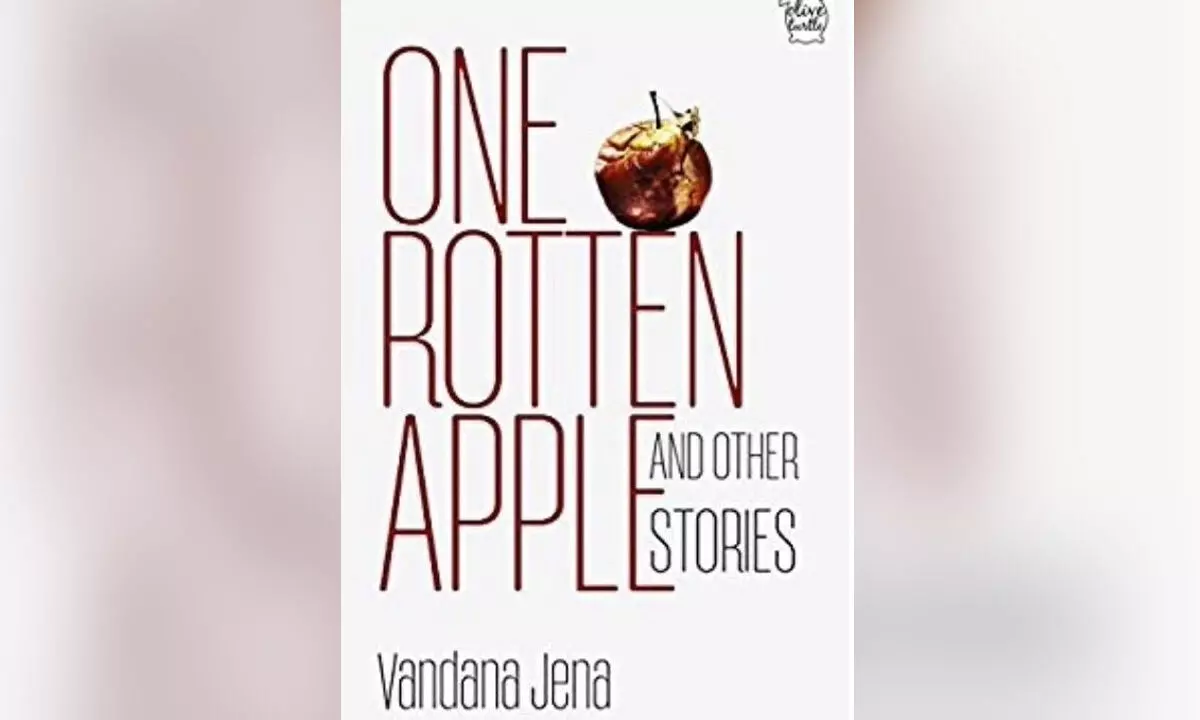Remarkable Reads

Remarkable Reads
After the success of her heart-touching books like “The Dance Of Death” and “The Incubation Chamber”, Vandan Jena, a prolific author, once again dips her quill in ink with her latest book “One Rotten Apple and other stories”.
After the success of her heart-touching books like "The Dance Of Death" and "The Incubation Chamber", Vandan Jena, a prolific author, once again dips her quill in ink with her latest book "One Rotten Apple and other stories". The book is an anthology of twenty-six stories in which the writer consummately paints a melange of men and women who resonate with every class of readers. Moreover, the writer displays a remarkable emotional and social sensitivity and thereby adroitly weaves a tapestry of life's reality by shedding a flood of light on the spectrum of human emotions, the psychological upheavals of the characters and some seriously menacing social scourges.
In her opening story, "Blood Ties", Jena deals with the theme of adultery, which we can not sanctimoniously dub as one of the cardinal sins because the author does not seem to hold the "not so guilty" in the dock of morality. The futility of war and terror is undoubtedly a case to lament over, the echoes of which reverberate louder in her upcoming tales like "Initiation Rites", "The Choice", and "The unforgiven". Ours is a world quite vulnerable to radical terrorism and religious conflicts. Aftab in "Initiation rites" is an iconoclastic figure, representing some misguided youth who falls easy prey to the diabolical design of terror outfits and wreaks destruction by snuffing innocent lives.
His words, the 'Mission Accomplished' after blowing off a train, expose the underbelly of our terror-afflicted society. This very idea of insurgency is carried forward in another story, "The Choice", which leaves the terror attack survivor Charu scared for their life. Though she escapes physically unhurt, she has undoubtedly hurt her whole life. The brutalities of communal riots and rapes are agonizingly delineated in "The Saviour" and "Cry, My Beloved child". The acerbic tongue of the author is indeed unsparing in taking its potshots against the gory crime of rape. Still, she redeems "The Saviour" gracefully by proffering the idea that every saffron-clad Swami is not a hard-core fanatic. The irresistible atheist Kabir is another antithesis of those religious bigots who tarnish the very image of religion by spilling blood.
Finally, the tale "One Rotten Apple", entitled the anthology shatters Mannan Aluwalia, whose schizophrenic wife drowns her two children to death. Still, the unconditional love of Mita for the bereaved father is quite sublime. Although the world of Jena is fraught with blood, gore and heart-rending killings where a hapless mother puts an end to the life of her physically deformed infant, a cuckold husband smothers his infidel wife to death, and a rash driver feels no qualms about conscience after mauling down the three homeless folks sleeping by the roadside.
Yet, her realistic handling of the horror does not bring bile up in the mouth of the reader. Her "Air Ticket, to an extent, draws sympathy for the betrayed husband who has just been used as a visa to land on the soil of the us by his newly-wed bride to be united with her paramour there, but it also leaves the reader in some stifled laughs in his sleeves. Irony permeates in "The Atonement", which raises its "invidious figure" against the dreadful crime of female foeticide. Suppose we scan the structure of her stories. In that case, most of them have engaging narratives that race gallopingly towards their well-built finale on the wings of the choicest linguistic elements, which are easy to comprehend.










